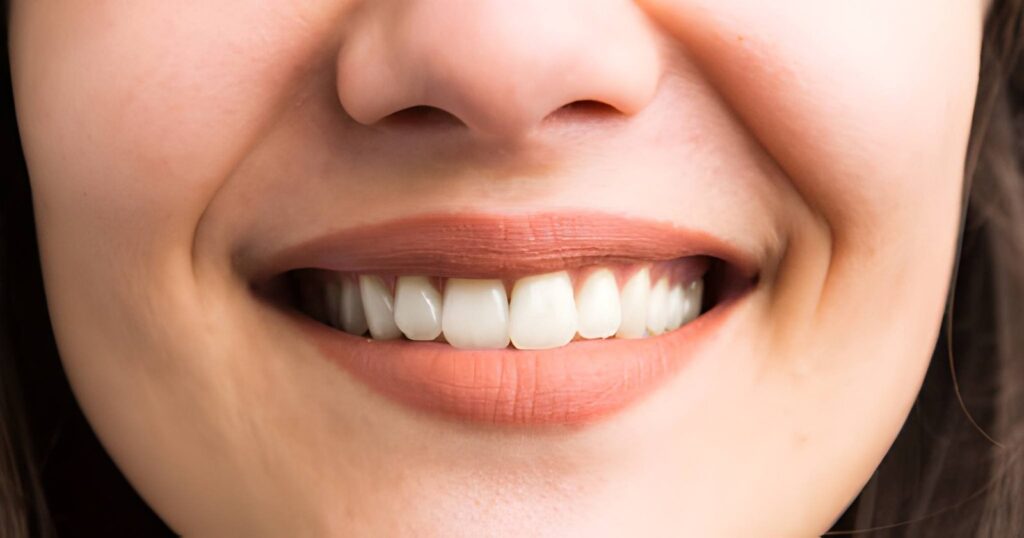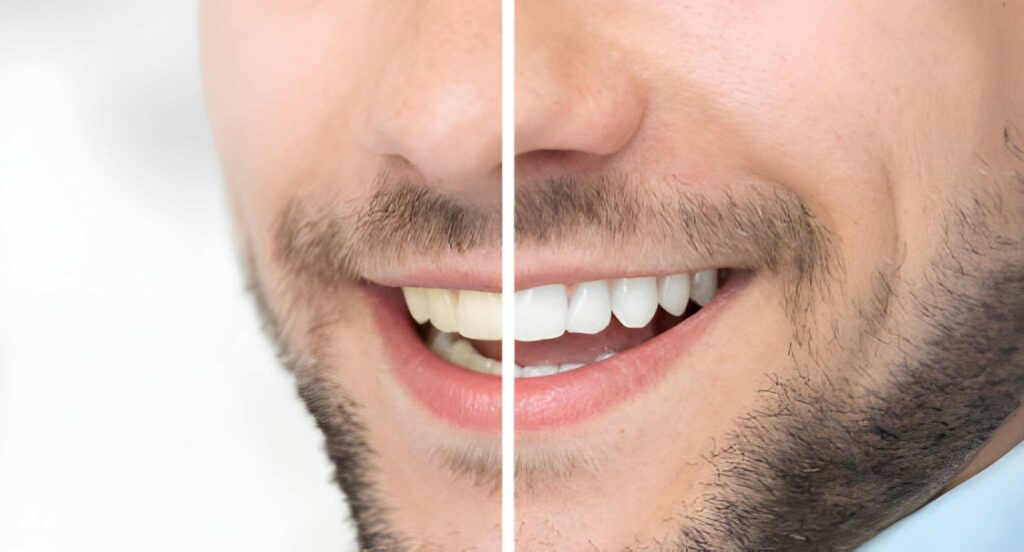It’s easy to put off a dental visit, and life can often get in the way. However, if you don’t go to the dentist for two years, you might start to notice some changes in your oral health. Dental problems can develop silently, and if left untreated, they can become much more serious. In this article, we’ll explain what happens if you miss regular dental check-ups for two years and why it’s important to see your dentist regularly.
1. Increased Risk of Tooth Decay
Tooth decay is one of the most common dental problems. When you don’t go to the dentist for a long time, plaque can build up on your teeth. Plaque is a sticky film made up of bacteria, food particles, and saliva. Over time, plaque can turn into tartar, which can only be removed by a dentist or hygienist. Tartar creates a perfect environment for bacteria to thrive, which can lead to tooth decay.
If you don’t visit an Aberdeen-based NHS dental clinic for two years, small cavities can grow larger. What might begin as a minor, easily treatable issue can become more complex without early intervention. In some cases, untreated tooth decay can even lead to tooth loss.
Can You Get Veneers on the NHS
2. Gum Disease May Develop
Gum disease, also known as periodontal disease, is another common problem that can occur when you neglect your dental visits. Gum disease starts with gingivitis, which is an early stage of inflammation in the gums. If gingivitis is left untreated, it can progress to periodontitis, a more severe form of gum disease that affects the tissues and bones supporting your teeth.
When you don’t go to the dentist for two years, you’re more likely to develop gum disease because plaque and tartar aren’t being removed regularly. Signs of gum disease include swollen or bleeding gums, bad breath, and tooth sensitivity. Left untreated, gum disease can lead to tooth mobility and even tooth loss.
Can You Get Same Day Dentures on NHS?
3. Tooth Sensitivity Increases
Tooth sensitivity is a common problem, especially for people who avoid the dentist. Over time, untreated cavities or gum disease can expose the sensitive parts of your teeth. If the enamel, which protects your teeth, is worn down, you may experience pain or discomfort when eating hot, cold, or sweet foods.
When you avoid dental visits, it becomes more difficult to manage tooth sensitivity. Regular check-ups allow your dentist to spot potential problems before they lead to more serious issues. If you don’t visit the dentist, sensitivity may worsen, and you may find it harder to eat or drink certain things comfortably.
How Much Will a Full Set of Dentures Cost on the NHS?
4. Risk of Oral Cancer Increases
Oral cancer is a serious health concern that can develop over time without proper dental care. Regular dental visits are essential for detecting early signs of oral cancer, as dentists are trained to spot abnormalities in the mouth, lips, and throat. If you don’t go to the dentist for two years, you may miss the opportunity to detect oral cancer at an early stage.
Symptoms of oral cancer can include sores that don’t heal, lumps, or changes in the texture of the mouth or throat. If left untreated, oral cancer can spread and become much harder to treat. Regular dental check-ups allow for early detection and can save lives by identifying cancer early.
How Much is a Tooth Extraction NHS?
5. More Expensive and Complex Treatment
When you delay dental care for two years, problems that could have been treated easily become more complicated. Small cavities can grow into large ones, requiring more expensive treatments like root canals or crowns. Gum disease, left untreated, may lead to the need for more advanced treatments such as deep cleaning or even surgery.
Not visiting the dentist for two years means you may end up with more costly and invasive procedures than if you had gone for regular check-ups. Regular visits help prevent small problems from turning into expensive and painful procedures down the line.
6. Bad Breath (Halitosis) Can Become a Problem
Bad breath, also known as halitosis, can be a result of poor oral hygiene, gum disease, or untreated cavities. When you don’t go to the dentist, plaque and tartar build-up can lead to bacterial growth in your mouth, which causes unpleasant odours.
Bad breath can be embarrassing and uncomfortable, and it often worsens if you avoid dental care for a long period of time. Seeing your dentist regularly can help you prevent bad breath by keeping your teeth and gums clean and healthy.
Why Are Dentists Stopping NHS Treatment?
7. You Might Lose Teeth
One of the most serious consequences of avoiding the dentist for two years is the possibility of losing teeth. Untreated cavities, gum disease, and tooth infections can lead to the loss of teeth. In fact, gum disease is one of the leading causes of tooth loss in adults.
When you don’t go to the dentist regularly, small issues can escalate, and you may eventually need tooth extractions. Losing teeth can affect your appearance, your ability to chew, and your overall quality of life. Regular dental check-ups are the best way to prevent tooth loss.
Can an NHS Dentist Remove You Without Warning?
8. Overall Health Can Be Affected
Your oral health is closely connected to your overall health. Problems like gum disease and untreated cavities can affect more than just your teeth. Studies have shown that poor oral health is linked to other serious health conditions, such as heart disease, stroke, and diabetes.
By not visiting the dentist for two years, you may be putting your general health at risk. Regular dental visits help ensure that your mouth stays healthy, which in turn supports your overall health.
Can I Get My Teeth Done Through the NHS
9. You’ll Miss Out on Preventive Care
The most important reason to go to the dentist regularly is to prevent problems before they start. Preventive care, such as professional cleanings, fluoride treatments, and oral cancer screenings, can help maintain your oral health and prevent serious issues.
By avoiding the dentist for two years, you miss out on these preventive services, which can save you from future pain, discomfort, and expense. Regular check-ups also give your dentist the opportunity to monitor your oral health and catch any early signs of problems.
How Much Is a Crown on the NHS?
Conclusion
Not going to the dentist for two years can lead to many dental complications, from tooth decay and gum disease to tooth loss and more serious health concerns. Regular dental visits are essential for maintaining your oral health, preventing expensive treatments, and detecting problems before they worsen.
If you haven’t seen a dentist in a while, it’s never too late to start taking care of your teeth. Book an appointment with your dentist today to keep your smile healthy and bright.
What Are My Rights as an NHS Dental Patient?
Schedule Your Appointment at Holburn Dental and Implant Centre
If you haven’t visited the dentist in a while, don’t wait any longer to take care of your oral health. At Holburn Dental and Implant Centre, we offer comprehensive dental services, from routine check-ups to advanced treatments. Our experienced team is here to help restore and maintain your smile. Book your appointment today and take the first step towards a healthier, brighter smile!
FAQs About Not Going to the Dentist for 2 Years
Can I reverse tooth decay without visiting the dentist?
No, tooth decay cannot be reversed without professional care. A dentist can help treat cavities before they progress further, but only they can properly clean and repair decayed teeth to prevent further damage.
2. How often should I go to the dentist for check-ups?
It’s generally recommended to visit the dentist every six months for routine check-ups and cleaning. However, if you have specific dental concerns, your dentist may recommend more frequent visits.
3. Can skipping the dentist lead to tooth loss?
Yes, avoiding dental check-ups can lead to untreated gum disease and cavities, which may cause tooth loss over time. Regular visits can help prevent these issues and protect your teeth.
4. Will skipping dental visits affect my general health?
Yes, poor oral health can affect your overall health, as gum disease is linked to conditions like heart disease and diabetes. Regular dental visits help maintain both oral and overall health.
5. What happens if my gums start bleeding during a dental visit after years of no check-ups?
Bleeding gums could be a sign of gum disease. Your dentist will examine your gums and may recommend treatment, such as cleaning or periodontal care, to manage and reverse the condition.




